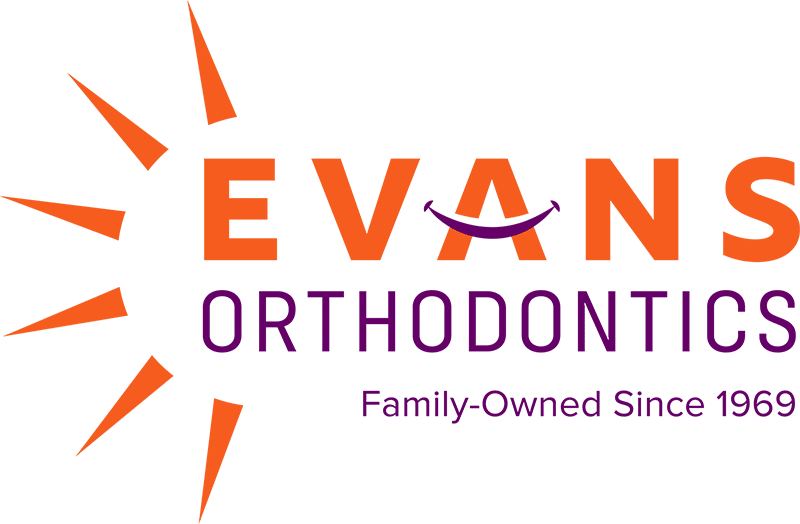At what age should a child first visit the orthodontist?
The American Association of Orthodontists advises that most children should receive an orthodontic screening by age 7. This early evaluation allows Drs. Bruce and Brad Evans to assess when orthodontic treatment is necessary and identify the optimal timing for intervention. Many local dentists are trained to spot early orthodontic issues and may refer your child to our office before they turn 7 if there are concerns.
Why are children evaluated at such an early age?
Early diagnosis and treatment play a crucial role in guiding erupting teeth into more favorable positions. This proactive approach helps preserve space for permanent teeth and decreases the risk of injuries to protruding front teeth.
If early treatment is indicated, our doctors can effectively manage the growth of the jaw and the alignment of incoming permanent teeth.
Benefits of early intervention include:
- Regulating the dental arch widths
- Creating space for permanent teeth
- Minimizing the likelihood of tooth extractions
- Reducing the chances of impacted permanent teeth
- Addressing thumb sucking and other oral habits
Overall, early treatment can simplify future orthodontic procedures, making it a wise choice for your child’s dental health.
Does early treatment benefit all children?
Not every child will benefit from early treatment. Certain orthodontic issues can be more effectively addressed during the teenage years when all the permanent teeth have erupted. Additionally, some skeletal problems may need to wait until growth has advanced or been completed.
Our doctors will customize a treatment plan based on each child’s individual needs. If the doctor determines that the patient is not yet ready for treatment, they will be placed in our orthodontic supervisory program. Nonetheless, it is recommended for all children to be evaluated around age 7.
What is the Orthodontic Supervisory Program?
The orthodontic supervisory program is designed for patients who are not yet ready for treatment and have been placed on a recall schedule.
- This program allows us to monitor the eruption of permanent teeth.
- In some cases, early removal of baby teeth can improve the eruption pattern of permanent teeth, potentially shortening the time required for braces later on.
We typically see patients every 8-12 months during this program to track their growth progress, and there is no fee for participation. This approach helps our orthodontists determine the best time to initiate treatment, ensuring optimal outcomes for your child.
In addition to a beautiful new smile, what are some other benefits of orthodontic treatment?
Braces enhance the appearance of a smile and improve the functionality of the bite and teeth, facilitate better oral hygiene, prevent excessive wear on teeth, and extend the longevity of natural teeth throughout life.
How Can a Palatal Expander Help My Child?
A palatal expander is an effective tool used in early orthodontic treatment to gently widen the upper jaw, creating more space for permanent teeth. It can also improve breathing by widening the nasal airway. This treatment is especially beneficial for children whose jaws are still developing, as it helps guide proper alignment and prevents more serious dental issues in the future. Additionally, wider upper arches contribute to broad, beautiful smiles at the end of treatment. By addressing these concerns early, a palatal expander can minimize the need for more extensive orthodontic work later on.
If a child has treatment early, will this prevent the need for braces as an adolescent?
Early treatment can:
- Address significant issues
- Prevent more severe complications
- Simplify future orthodontic care
Typically, it does not eliminate the need for braces in the teenage years. Since not all permanent teeth may erupt during early treatment, a shorter comprehensive phase (Phase II—full braces) is often required later to complete the alignment. In some cases, however, additional treatment may not be needed.
Do we still need to see our family dentist during orthodontic treatment?
Yes, children with braces or other orthodontic appliances must make an extra effort to maintain their oral hygiene. To ensure the highest level of dental health, we recommend regular check-ups and cleanings with your family dentist every 6 months during orthodontic treatment.
